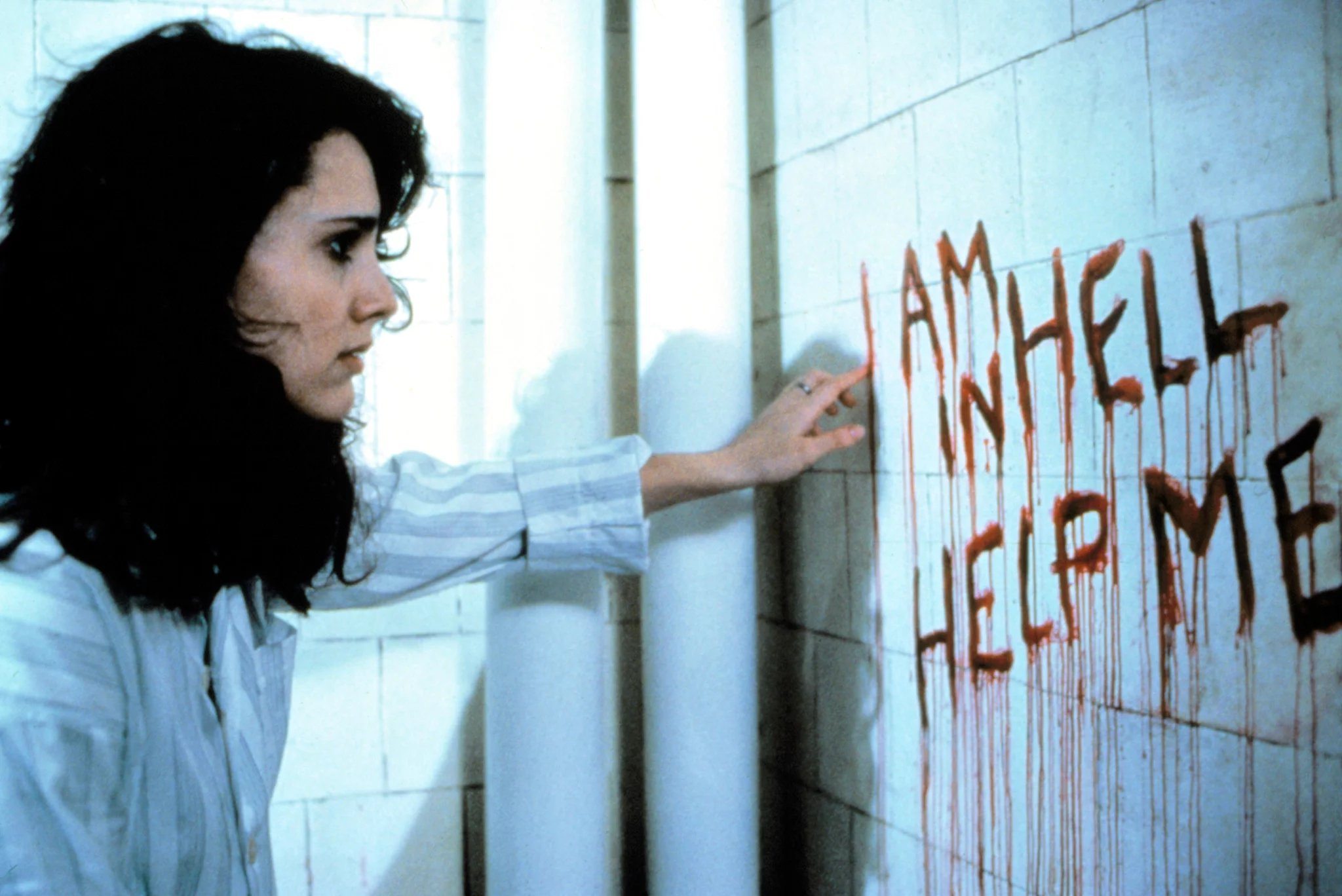
HELLRAISER II is one of my favorite sequels of all time, in any genre. It’s one of those amazing films that manages to go bigger than the first film, but also more intimate in some ways, all at the same time. It is a beautiful, lavish movie, it expands the lore, it widens the scope and feels huge even though it is still by all means a low budget film. Much of this scope is also provided by composer Christopher Young's absolutely breathtaking score.
In the days following the first movie, Kirsty Cotton is taken to a psychiatric hospital after telling police the story of the puzzle box that summoned demons from Hell that destroyed her family. (More or less) The first film revolved around an escapee from Hell, and the second film inverts that plot as Kirsty receives a message she believes to be from her father and decides to open the box, to journey into Hell to bring him back.
It starts off by building up a soft retelling of the Greek myth of Orpheus, before taking a decidedly different direction. Julia, who gradually came to grips with her inner darkness in the first film, is a delightful, unhinged villain in the second. She’s been reborn in Hell, she has no illusions about who she is. She’s transformed.
Many people criticize this film for existing in a kind of uncanny valley, story-wise. The characters are full-fledged and naturalistic, Kirsty has a very straightforward arc, and yet once they’re in Hell, the plot operates on a kind of dream logic. That’s actually one of my favorite things about this movie. It’s so subtle and I love it so much. Pinhead mentions to Kirsty that her father is “in his own Hell” just as she as in hers. Hell is a metaphysical place as much as it is a physical one.
There’s a protagonist shift in this movie, we’re focused on Kirsty for much of the film, and for her, Hell is the labyrinth. Hell is a maze that she has to navigate. Once that resolves, we pivot to the young girl Tiffany, a patient who is always working on puzzles, and once we’re seeing the movie through her eyes, it transforms. At that point, Hell becomes a puzzle that she needs to solve. Tiffany is mute for most of the movie, but a perfect protagonist for this outing into fantasy. She’s an observer, a classical fantasy heroine in the tradition of Lewis Carroll’s Alice, and countless fairy tales and folktales before that. Channard is the trickster who has held her back, long before he opened a puzzle box, and in solving the puzzle and finding her way out of the labyrinth this man made of her brain, she recovers her voice and herself.
This movie expands on so much presented in the first, but in small doses. Just enough about Hell, just enough about Pinhead and the Cenobites and who they were before. It’s a bigger movie, but an experimental one, it’s more expansive and lavish and yet it features several shots that look like they’re ripped from a student art film in the best way possible. It also subverts the reception of the original. Audiences had responded to Pinhead immediately when the original came out, and made it clear that he was what they wanted to see moving forward, when he really wasn’t the villain. Julia, who was the villain, as she was the one doing the killing (Frank is still obviously the villain behind the villain) has been reborn much more explicitly evil. But Pinhead shows a humanity that I’m betting no audience members expected at the time.
It’s also outrageously gory. For a film as beautiful as it is, it’s disgusting at the same time, and that is such a unique blend. Because of that, I think HELLRAISER II is one of the greatest, if not the greatest, horror fantasy films ever made.